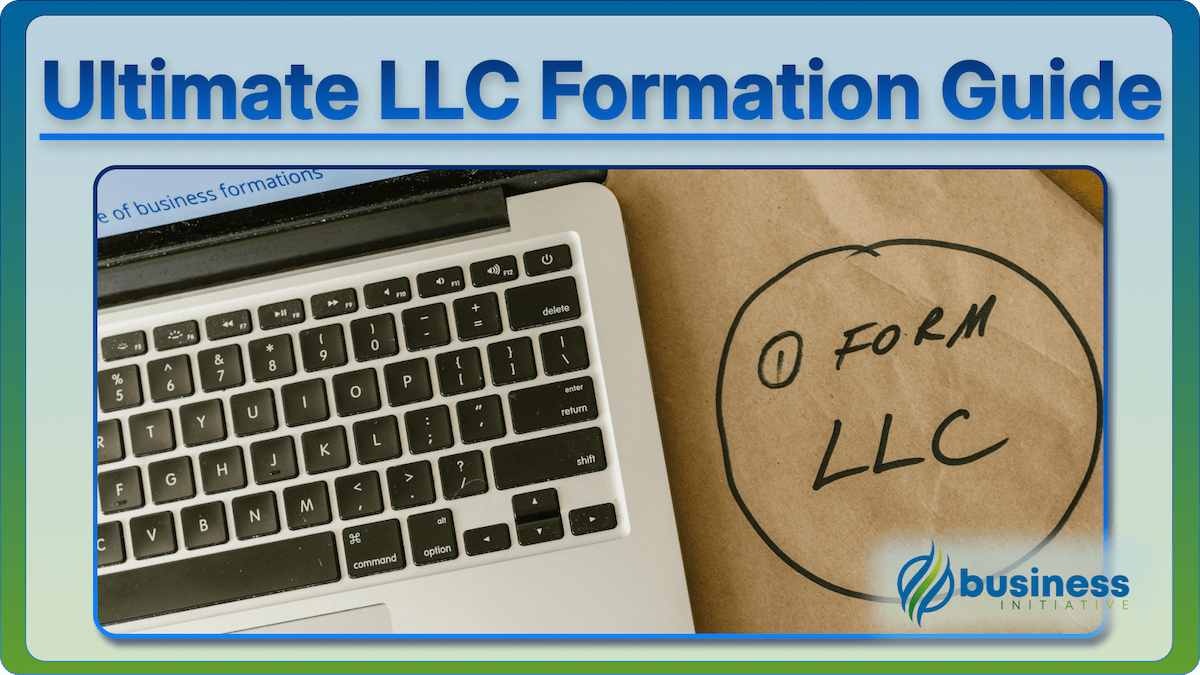You need to document ownership.
You want records that stand up.
You need proper documentation.
You need a system.
Documentation. Records. Storage. Your system.
This guide shows you how.
Beneficial ownership. Documentation practices. Record keeping. Your compliance.
Read this. Document properly. Protect yourself.
 Key Takeaways
Key Takeaways
- Document all beneficial owners—maintain complete records for each individual who owns 25% or more or exercises substantial control
- Update records promptly—document ownership changes within 30 days and maintain accurate records at all times
- Store records securely—keep documentation in secure, accessible locations with proper backup and retention policies
- Maintain supporting documents—keep copies of formation documents, operating agreements, ownership certificates, and related records
- Document decision-making—record how beneficial owners were identified, what information was used, and when determinations were made
 Table of Contents
Table of Contents

Why Documentation Matters
Documentation protects you.
What happens without documentation:
- Records are incomplete
- Compliance fails
- Scrutiny exposes gaps
- Protection is weak
What happens with documentation:
- Records are complete
- Compliance is maintained
- Scrutiny confirms accuracy
- Protection is strong
The reality: Documentation enables protection.
What to Document
Document all required information:
Beneficial Owner Information
What to document:
- Full legal name
- Date of birth
- Residential address
- Unique identifying number (SSN, passport, etc.)
- Ownership percentage
- Control status
Why it matters: Complete information ensures accuracy.
Ownership Structure
What to document:
- Ownership percentages
- Control arrangements
- Voting rights
- Management roles
- Decision-making authority
Why it matters: Structure documentation supports filings.
Change History
What to document:
- Ownership changes
- Control changes
- Address changes
- Name changes
- Date of changes
Why it matters: Change history demonstrates compliance.
Pro tip: Document everything. Beneficial owner information, ownership structure, change history. See our BOI guide for filing requirements.

When to Update
Update records promptly:
Ownership Changes
When to update:
- Immediately upon change
- Within 30 days for BOI filing
- Before next compliance review
- When change is finalized
Why it matters: Prompt updates ensure accuracy.
Information Changes
When to update:
- Address changes
- Name changes
- Contact information changes
- Identification number changes
Why it matters: Information changes require updates.
Regular Reviews
When to review:
- Quarterly compliance checks
- Annual assessments
- Before major transactions
- When filing updates
Why it matters: Regular reviews catch issues.
Pro tip: Update promptly. Ownership changes, information changes, regular reviews. See our BOI timeline guide for update deadlines.
How to Store
Store records securely:
Digital Storage
What to use:
- Secure cloud storage
- Encrypted file systems
- Access-controlled databases
- Backup systems
Why it matters: Digital storage enables access and security.
Physical Storage
What to use:
- Secure filing systems
- Locked storage areas
- Fireproof safes
- Off-site backup locations
Why it matters: Physical storage provides redundancy.
Access Control
What to control:
- Who can access records
- When access is granted
- How access is logged
- What changes are tracked
Why it matters: Access control protects information.
Pro tip: Store securely. Digital storage, physical storage, access control. See our BOI governance guide for security practices.

Supporting Documents
Maintain supporting documents:
Formation Documents
What to keep:
- Articles of incorporation/organization
- Operating agreements
- Bylaws
- Initial ownership records
Why it matters: Formation documents establish ownership.
Ownership Certificates
What to keep:
- Stock certificates
- Membership certificates
- Ownership transfer documents
- Equity agreements
Why it matters: Certificates document ownership.
Control Documents
What to keep:
- Management agreements
- Voting agreements
- Control arrangements
- Decision-making records
Why it matters: Control documents support determinations.
Pro tip: Maintain supporting documents. Formation documents, ownership certificates, control documents. See our BOI guide for filing requirements.
Retention Policies
Establish retention policies:
Retention Periods
What to retain:
- BOI filings and confirmations
- Ownership documentation
- Change records
- Supporting documents
Why it matters: Retention periods ensure availability.
Backup Procedures
What to backup:
- All ownership records
- Filing confirmations
- Change documentation
- Supporting documents
Why it matters: Backups prevent data loss.
Disposal Procedures
What to dispose:
- Outdated records (after retention)
- Duplicate documents
- Superseded information
- According to policy
Why it matters: Disposal procedures protect privacy.
Pro tip: Establish policies. Retention periods, backup procedures, disposal procedures. See our BOI routine guide for compliance habits.
Your Next Steps
Document properly. Store securely. Maintain records.
This Week:
- Review this guide
- Assess current documentation
- Identify gaps
- Create documentation system
This Month:
- Document all beneficial owners
- Organize supporting documents
- Establish storage system
- Create retention policies
Going Forward:
- Update records promptly
- Maintain documentation
- Review regularly
- Store securely
Need help? Check out our BOI filing guide for filing requirements, our BOI timeline guide for update deadlines, our BOI governance guide for governance practices, and our registered agent guide for business address setup.
Stay informed about business strategies and tools by following us on X (Twitter) and signing up for The Initiative Newsletter.
FAQs - Frequently Asked Questions About Documenting Beneficial Ownership: How to Keep Records That Stand Up Under Scruti

What information must I document for each beneficial owner under BOI requirements?
Full legal name, date of birth, residential address, unique identifying number (SSN or passport), ownership percentage, and control status.
Learn More...
For each beneficial owner—anyone owning 25% or more of the company or exercising substantial control—you must maintain their complete legal name, date of birth, current residential address, and a unique identifying number such as a Social Security Number or passport number.
Beyond personal details, document their exact ownership percentage, voting rights, management roles, and any decision-making authority they hold. This comprehensive record is what regulators expect when they examine your company's ownership structure.
How quickly do I need to update beneficial ownership records when something changes?
Update internal records immediately upon any change, and file updated BOI reports within 30 days of the change.
Learn More...
When ownership percentages shift, a beneficial owner's personal information changes, or control arrangements are modified, your internal documentation should reflect the change right away. For BOI filings with FinCEN, you have a 30-day window to submit an updated report.
Beyond reactive updates, conduct quarterly compliance checks and annual assessments to catch anything that may have slipped through. Review records before major transactions to ensure everything is current and accurate.
Where should I store beneficial ownership records to keep them secure?
Use a combination of encrypted digital storage with access controls and physical storage in locked, fireproof locations, with backups at a separate off-site location.
Learn More...
Digital storage should use secure cloud platforms or encrypted file systems with access controls that limit who can view or modify records. Track all access with audit logs so you can demonstrate to regulators exactly who viewed ownership information and when.
Physical copies should be kept in locked filing cabinets or fireproof safes, with duplicates stored at an off-site backup location. This dual approach ensures records survive system failures, data breaches, or physical disasters while remaining accessible when needed.
What supporting documents should I keep alongside beneficial ownership records?
Articles of incorporation or organization, operating agreements, bylaws, stock or membership certificates, ownership transfer documents, and equity agreements.
Learn More...
Formation documents like articles of incorporation and operating agreements establish your initial ownership structure. Ownership certificates—whether stock certificates or membership interest certificates—provide evidence of current ownership. Transfer documents show the chain of custody for ownership interests.
Also maintain control-related documents including management agreements, voting agreements, and records of decision-making authority. These supporting documents corroborate your BOI filings and demonstrate how you identified each beneficial owner.
How do I document the decision-making process used to identify beneficial owners?
Record how you determined each beneficial owner, what information and documents you reviewed, and when you made each determination.
Learn More...
Create a written record that explains your methodology: which ownership documents you reviewed, how you calculated ownership percentages, and how you identified individuals exercising substantial control. Include the date of each determination and the name of the person who conducted the analysis.
This process documentation is what separates records that survive regulatory scrutiny from those that don't. If a regulator asks why you identified certain individuals as beneficial owners, your documentation should provide a clear, logical trail from source documents to your BOI filing.
How long should I retain beneficial ownership documentation?
Retain all BOI filings, ownership records, change documentation, and supporting documents for as long as the entity exists, plus any period required by applicable regulations.
Learn More...
Keep BOI filing confirmations, complete ownership documentation, all change records, and supporting formation documents indefinitely while the entity is active. Even after ownership changes, retain historical records to demonstrate past compliance.
Establish formal retention policies that include regular backups, a schedule for disposing of truly outdated duplicates, and procedures for secure disposal that protect sensitive personal information. Never discard original ownership records—only dispose of redundant copies after the retention period expires.
Sources & Additional Information
This guide provides general information about BOI documentation and record-keeping. Your specific situation may require different considerations.
For BOI filing, see our BOI Filing Guide.
For BOI timeline, see our BOI Timeline Guide.
For BOI governance, see our BOI Governance Guide.
For registered agent services, see our Registered Agent Guide.
Consult with professionals for advice specific to your situation.


